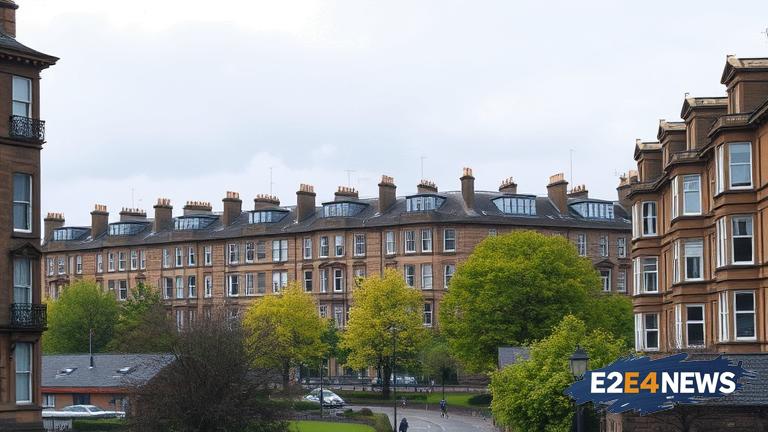The city of Edinburgh is facing a housing crisis, with the suspension of housing allocations potentially lasting until 2027. This decision has left many residents worried about their future housing prospects. The suspension was initially put in place due to a shortage of available housing stock, but it has now been extended several times. The latest extension has sparked concerns among residents, who are struggling to find affordable housing in the city. The Edinburgh City Council has stated that the suspension is necessary to ensure that the housing allocation system is fair and effective. However, many residents disagree, arguing that the suspension is unfair and has left them without access to much-needed housing. The council has also announced plans to increase the supply of affordable housing in the city, but these plans are still in the development stage. In the meantime, residents are being forced to look elsewhere for housing, with many turning to the private rental market. This has led to an increase in rents, making it even more difficult for low-income residents to find affordable housing. The suspension of housing allocations has also had a disproportionate impact on vulnerable groups, such as the homeless and those with disabilities. These groups are often reliant on the housing allocation system to access safe and secure housing. The Edinburgh City Council has come under criticism for its handling of the housing crisis, with many arguing that the council has not done enough to address the issue. The council has responded by stating that it is working to increase the supply of affordable housing, but this has done little to alleviate the concerns of residents. The suspension of housing allocations has also had a impact on the local economy, with many businesses struggling to attract and retain staff due to the lack of affordable housing. The city’s reputation as a desirable place to live and work is also at risk, with the housing crisis deterring potential residents and businesses. The Scottish Government has also been criticized for its handling of the housing crisis, with many arguing that it has not provided enough support to local councils to address the issue. The government has responded by stating that it is committed to increasing the supply of affordable housing, but this has done little to alleviate the concerns of residents. The suspension of housing allocations in Edinburgh is a complex issue, with many different factors contributing to the crisis. The city’s population is growing rapidly, putting pressure on the housing stock. At the same time, the city is facing a shortage of affordable housing, with many residents being priced out of the market. The Edinburgh City Council is working to address the issue, but it is clear that more needs to be done to ensure that all residents have access to safe and secure housing. The council has announced plans to build thousands of new homes, but these plans are still in the development stage. In the meantime, residents are being forced to wait and see what the future holds for the city’s housing market. The suspension of housing allocations has also raised concerns about the fairness and transparency of the housing allocation system. Many residents have reported difficulties in accessing information about the system, and there are concerns that the system is not being managed effectively. The Edinburgh City Council has responded by stating that it is committed to ensuring that the system is fair and transparent, but more needs to be done to address the concerns of residents. The city’s housing crisis is a major issue, and it is clear that more needs to be done to address it. The suspension of housing allocations is just one part of the problem, and it is essential that the Edinburgh City Council and the Scottish Government work together to find a solution. The city’s residents deserve access to safe and secure housing, and it is the responsibility of the council and government to ensure that this happens.





